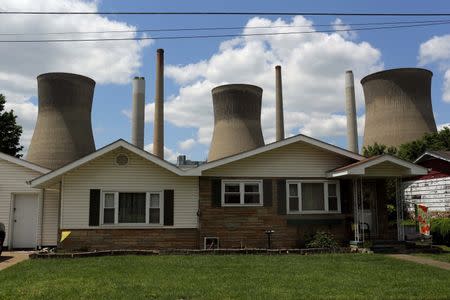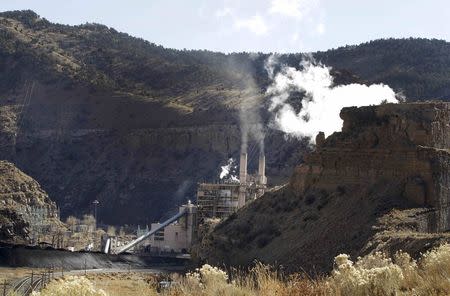Despite carbon ruling, White House says U.S. can meet climate deal goals
By Ayesha Rascoe WASHINGTON (Reuters) - The White House promised on Wednesday that it would be able to uphold U.S. commitments to an international climate change agreement, as a court ruling heightened concerns about the stability of the global carbon reduction pact reached last year. Shares of coal companies reflected the uncertainty the day after the U.S. Supreme Court ruling. After jumping nearly 7 percent early in the session, the Thomson Reuters U.S. coal index was down 3 percent in afternoon trading. The court dealt a serious blow to the Obama administration's climate change agenda on Tuesday when it took the unusual step to delay implementation of the Clean Power Plan until legal challenges to the regulation are completed. A centerpiece of the Obama administration's climate change policy, the Clean Power Plan was designed to lower carbon emissions from U.S. power plants by 2030 to 32 percent below 2005 levels. The decision to temporarily block the rule came after the United States entered into a landmark agreement in December with countries around the world to reduce greenhouse gas emissions. While the Clean Power Plan was expected to be the main tool for the United States to fulfill its part of the pact, White House spokesman Eric Schultz told reporters in a briefing that it was only one part of the nation's response to climate change. The long-term extension of the tax credits for renewable energy last year will continue to provide momentum that will transition the power sector toward cleaner sources of energy, Schultz said. "The inclusion of those tax credits is going to have more impact over the short term than the Clean Power Plan," he said. But French government spokesman Stephane Le Foll quoted outgoing Foreign Minister Laurent Fabius as saying after a cabinet meeting that the decision was "not good news," even if the debate will continue in the United States. Claudia Salerno, a Venezuelan diplomat who leads the country’s delegation at U.N. climate talks, described the ruling as "truly damaging" to the outcome of the pact in a Twitter message late on Tuesday. (Additional reporting by Lewis Krauskopf, Alister Doyle, Valerie Volcovici, Jeff Mason)



